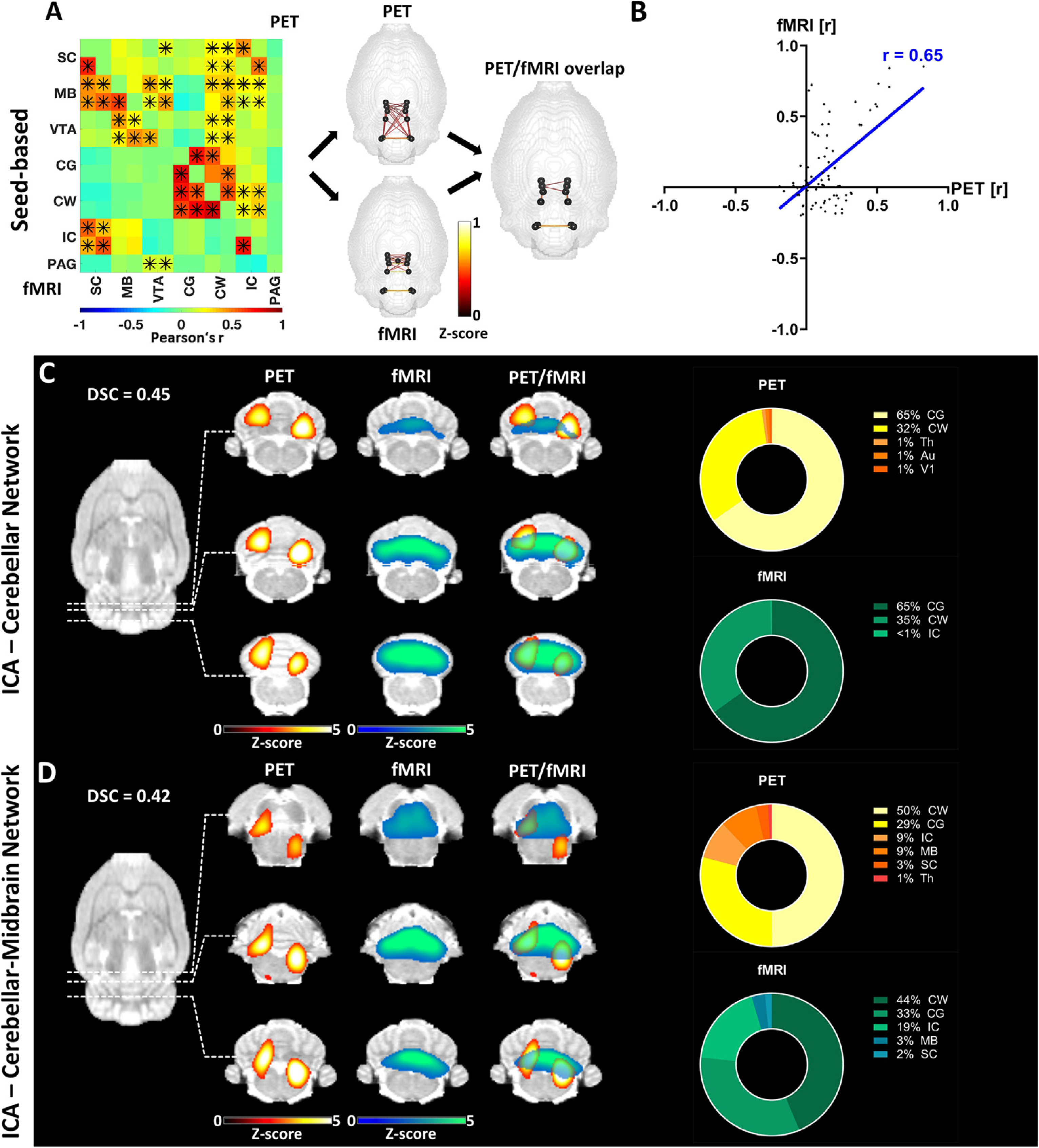Fig. 4.

Pairwise correlation analysis and ICA-derived connectivity of the cerebellar-midbrain network. (A) Mean connectivity matrix of the cerebellar-midbrain network for [18F]FDG-PET and BOLD-fMRI. The positive edges derived from a whole-brain sparsity threshold of 20% are depicted along with the common edges for both methods. * indicate significant correlations (p ≤ 0.05, corrected for multiple comparisons using Bonferroni-Holm). (B) Correlation of [18F]FDG connectivity and FC within the cerebellar-midbrain network assessed using Pearson’s r. (C) ICA-derived components [18F]FDG-PET and BOLD-fMRI data (z ≥ 1.96) comprising cerebellar regions along with their overlap and the contribution of different regions to the respective components. (D) ICA-derived components of [18F]FDG-PET and BOLD-fMRI data (z ≥ 1.96) comprising cerebellar and midbrain regions along with their overlap and the contribution of different regions to the respective components. The results are reported at group-mean level (n = 30). FC = fMRI-derived functional connectivity, ICA = independent component analysis, DSC = Dice-Sörensen coefficient. For a list of abbreviations of all regions, please refer to Supplementary Table 1.
